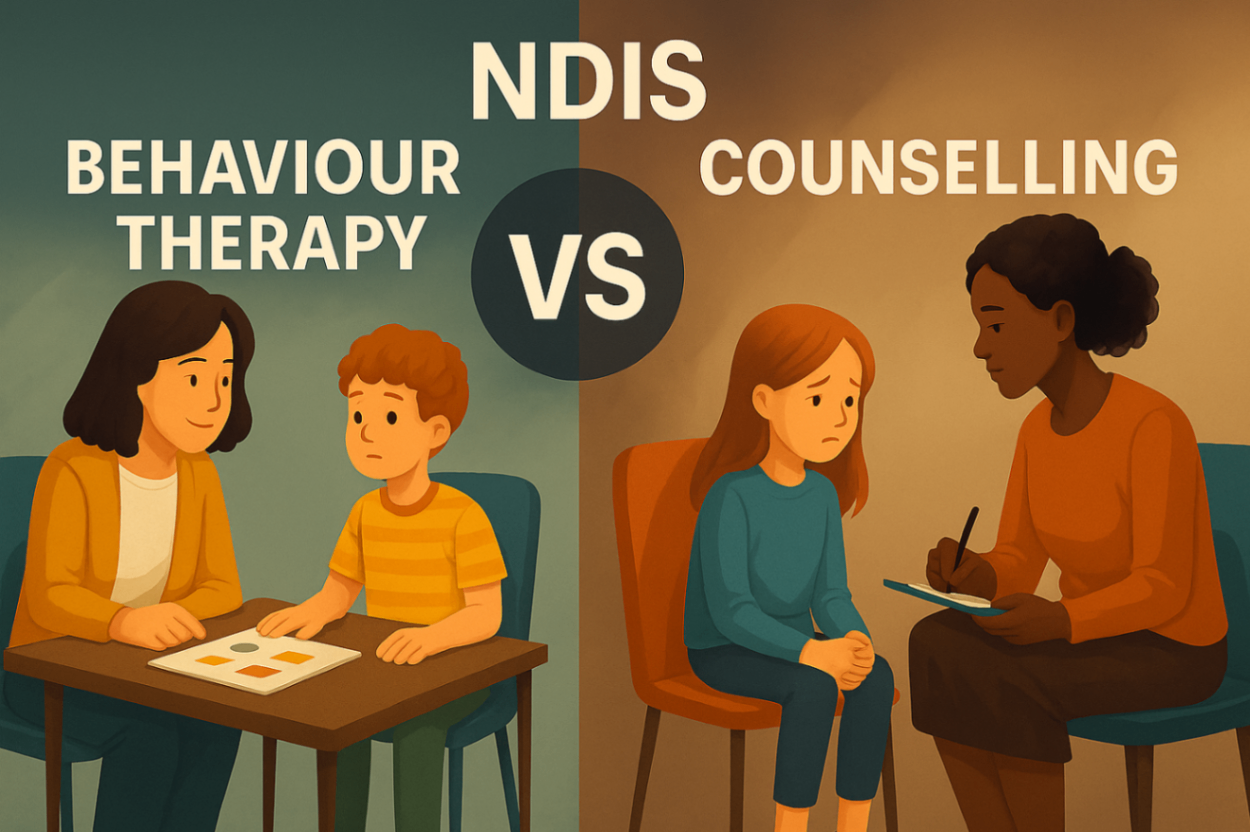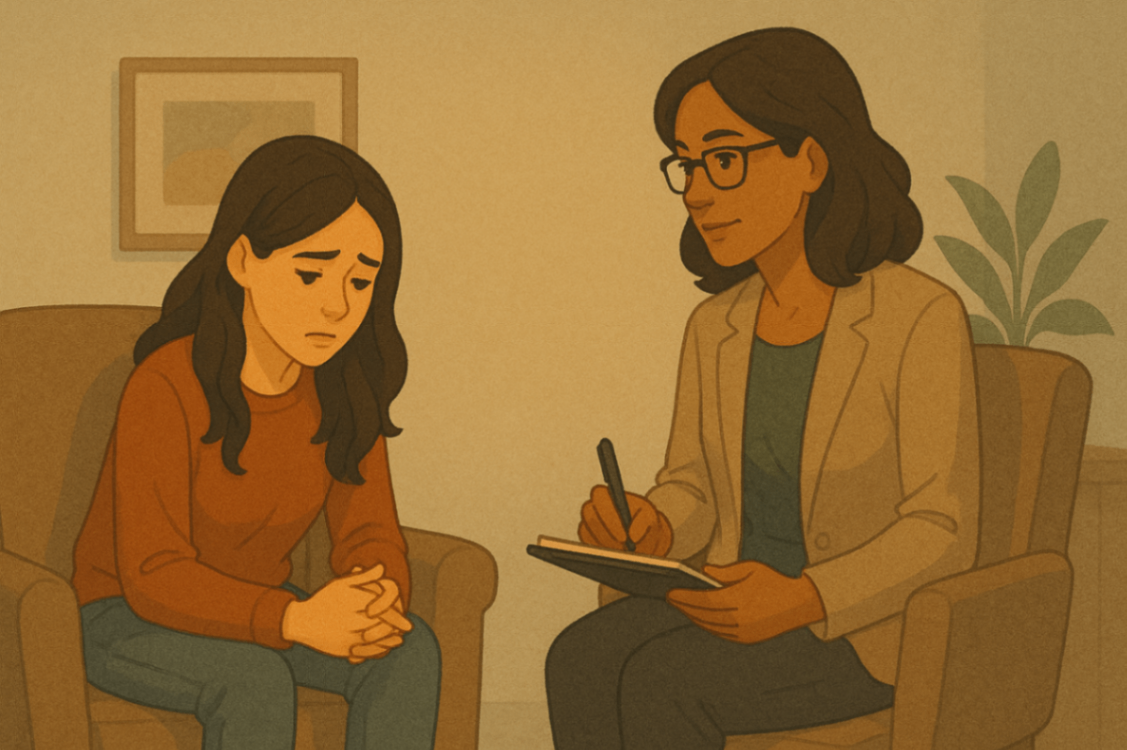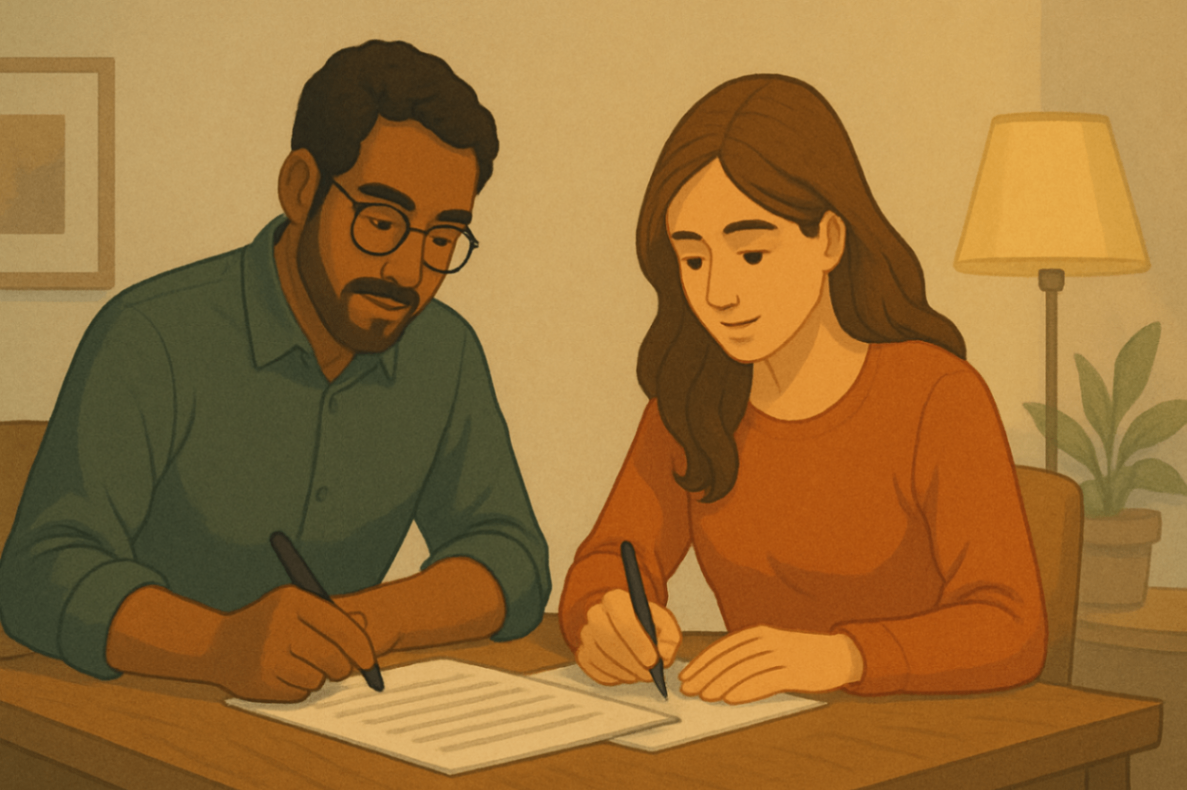
ndis behaviour therapy vs counselling for kids: parents should know
25 June, 2025

Key Highlights
-
Learn the differences between NDIS behaviour therapy and NDIS counselling.
-
Understand how positive behaviour support and therapeutic interventions improve outcomes.
-
Discover how to access services using NDIS funding.
-
Find guidance on choosing the right support pathway based on your child’s unique needs.
-
Explore the role of NDIS support coordination in accessing these services.
-
Suitable for families across Liverpool and surrounding suburbs like Casula, Moorebank, Wattle Grove, Prestons, and Edmondson Park.
Introduction
It can be hard for families to understand all the details about NDIS behaviour support. But when you know your options, you can really help your child. NDIS behaviour therapy and counselling both offer important ways to help with feelings and behaviours of concern. If you use the right support, which can come from your support network, you can help make your child’s quality of life better. This article talks about these choices and helps you make good decisions about what will work best for your child’s path as they grow.
Understanding the NDIS and Its Approach to Child Wellbeing
 The National Disability Insurance Scheme (NDIS) provides essential services to help children live healthier, more independent lives. By offering targeted support such as NDIS behaviour therapy and NDIS counselling, families can create long-term strategies for emotional and behavioural growth. Working with your support coordination team and NDIS providers ensures your child receives early intervention and personalised care tailored to their goals.
The National Disability Insurance Scheme (NDIS) provides essential services to help children live healthier, more independent lives. By offering targeted support such as NDIS behaviour therapy and NDIS counselling, families can create long-term strategies for emotional and behavioural growth. Working with your support coordination team and NDIS providers ensures your child receives early intervention and personalised care tailored to their goals.
What Is the NDIS and Who Is Eligible?
The national disability insurance scheme (NDIS) helps people with big and lasting disabilities. The NDIS gives money and different kinds of help, like behaviour therapy and counselling, to those who need it. These services want to help people live more on their own.
To get ndis funding, people need to meet some rules. Kids must be under 65 years old, live in Australia, and be citizens or have a permanent residency. This is important for getting the right ndis plans, like help with early intervention. Early intervention is there to help kids now, so they may not need as much help later on.
For step-by-step instructions on how to access NDIS services in Liverpool, check out: How to Access Specialised Behaviour Support in Liverpool: Step-by-Step for Families
How the NDIS Supports Children with Behavioural and Emotional Needs
NDIS behaviour therapy addresses behaviours of concern using techniques like positive behaviour support, functional assessments, and environmental adjustments. On the other hand, NDIS counselling focuses on a child’s emotional development through talk therapy, play-based therapy, and family involvement. For families seeking child mental health support in Liverpool, both pathways offer significant benefits and can be tailored to your child's specific needs.
Defining Behaviour Therapy Under the NDIS
Behaviour therapy given through NDIS is made to help build up positive behaviour. It also aims to cut down on behaviours that might cause worry. The process starts with a full behaviour check done by an NDIS behaviour support practitioner.
A full behaviour support plan, made with NDIS funding, gives clear steps to follow. The tools used for positive behaviour are made to fit each child. They help children learn new ways to talk and get along with people. This plan, focused on the person, gives families and those who work with the child what they need. It helps to make good changes that can last for the child.
Core Principles of Behaviour Therapy
Behaviour therapy with the NDIS uses some main ideas to help encourage good behaviour and manage behaviours that worry people. At the heart of this is positive behaviour support. This way, we make places where people can show better behaviour, and we try to cut down on things that can cause the bad behaviour to start.
Support plans for behaviour are made by behaviour support workers. Families and other people who help are also involved. Most times, these plans have things you can do to help people talk better, change routines, and handle unsafe behaviours in a safer way.
This is a long-term help that uses tools to figure out why a behaviour happens. By working on these things, NDIS behaviour therapy gives kids and their families a better way to grow and improve their overall quality of life. These support plans help make life better in the long run for everyone involved.
Common Techniques Used in Behaviour Therapy for Children
Behaviour therapy uses different ways to help children deal with behaviours that need attention. Here are some common techniques:
-
Cognitive behaviour therapy: This helps children get better at handling their emotions and coping with problems.
-
Autism spectrum support: Plans are made to fit each child and to help with behaviours seen in children with autism spectrum.
-
Environmental modifications: This means changing routines and the space around the child to give more support.
-
Positive reinforcement: Good behaviours are encouraged by giving rewards and helpful feedback.
These ways are known to work well. They are used with careful checks to make sure they fit each child’s own needs. This helps the child grow and do well over time.
How Counselling Services Support Child Mental Health in Liverpool
NDIS counselling can be vital for children dealing with anxiety, trauma, or emotional regulation challenges. Through structured sessions with a psychologist or mental health professional, children can build:
-
Emotional resilience
-
Confidence in social situations
-
Coping strategies during transitions
If your child lives in suburbs like Lurnea, Holsworthy, or Green Valley, our team provides both in-clinic and telehealth behavioural therapy options tailored to local families.
Explore more here: Online Behavioural Therapy for Children: How It Works (and How We Do It at Liverpool & Canterbury Clinics)
What Is Child Counselling and How Does It Work?
Child counseling gives therapy services that help young people face the emotional struggles they may have. In a supportive environment, counselors work with children so they can have the communication skills needed to share what is on their minds.
This process brings in allied health professionals who hold structured sessions. These sessions are set up to make sure kids feel safe and can open up about their feelings. Different ways are used to meet the child’s needs, such as play therapy or simple thinking skills.
Counseling also works with families, so support stays strong during daily routines. This builds a support network that is there for the child. All of these methods work together to help kids have emotional strength and see positive change in how they feel and act.
The Role of Counsellors in Supporting Children’s Mental Health
Counselors play a big part in helping kids with their mental health. They work with family members and also with others who help in therapy. The work often starts when they look at what emotional trouble the child has. Then, they make plans just for the child to help with these problems.
Counselors help families by giving tools they need in daily routines. These tools help children grow emotionally. People can use things like ways to handle stress or help with anger and open talks. When parents help in this, kids get the same support at home and in other places.
With these steps, counselors help children face what comes their way. This helps improve their mental health and lets them do well in school and with other people.
Key Differences Between NDIS Behaviour Therapy and Counselling
 While both behaviour therapy and counseling look to help make positive change, the way they work is quite different. Behaviour therapy looks at actions that may be a problem. It uses behaviour assessment and support plans to help people learn helpful habits. Counseling, on the other hand, is about handling feelings. It gives a supportive environment and tools for being strong when life gets tough.
While both behaviour therapy and counseling look to help make positive change, the way they work is quite different. Behaviour therapy looks at actions that may be a problem. It uses behaviour assessment and support plans to help people learn helpful habits. Counseling, on the other hand, is about handling feelings. It gives a supportive environment and tools for being strong when life gets tough.
NDIS providers make sure that both therapy services work with a child’s goals. Deciding to use behaviour therapy or counseling often comes down to what your child needs to meet their growth and emotional goals.
Goals and Outcomes of Each Approach
|
Aspect |
Behaviour Therapy |
Counseling |
|---|---|---|
|
Focus |
Positive behaviour; dealing with behaviours that cause worry |
Emotional struggles; finding ways to cope |
|
Approach |
Behaviour checks; personal support plans |
Supportive environment; time spent in therapy sessions |
|
Skills Developed |
Social skills, changing routines |
Communication skills, becoming stronger inside |
|
Effect on Quality of Life |
Helps with independence, makes quality of life better |
Gives emotional strength, helps families get along |
Behaviour therapy works on lowering things that spark hard behaviours, while counseling gives new tools to handle stress in life. Families need to look at their child’s needs and what they need for good development. This way, they can pick the best support plans for their child.
Talk to us about the best fit for your child’s NDIS support.
Qualifications and Training of Practitioners
NDIS behaviour support practitioners need to have the appropriate qualifications and know-how to work on therapeutic interventions. They focus on making individualised support plans to help manage and change behaviours of concern.
In the same way, clinical practitioners who give counseling have the right skills in mental health services. They use ways that help build emotional strength and better ways to talk and connect. NDIS providers make sure that every practitioner has high levels of training. They work in a way that looks at all parts of care and aims to improve the quality of life for children. Working together with these experts leads to good, real changes in the development of children.
Assessing Your Child’s Needs
 Knowing your child’s exact challenges is the first step in finding a good support network. Behaviour assessments show if your child’s needs come from behaviours that cause concern or if the needs come from emotional problems.
Knowing your child’s exact challenges is the first step in finding a good support network. Behaviour assessments show if your child’s needs come from behaviours that cause concern or if the needs come from emotional problems.
Families should work with NDIS providers to see what kind of help is needed. When you match plans from the first step assessments with special support plans, children can grow and do well. But, how do parents tell the difference between behaviour needs and emotional needs? Let’s look at this more.
Identifying Behavioural Versus Emotional Challenges
Figuring out if your child has behaviours of concern or emotional challenges often needs a professional to take a closer look. Some behaviour signs to look out for are aggression, not wanting to stick to routines, or having trouble with other people. Signs of emotional challenges can be when a child pulls away, seems sad a lot, or feels too anxious.
The NDIS-funded assessments look at all these signs to be sure the help fits your child's needs. Support plans for behaviour try to cut down on things that start these behaviours. Counseling gives your child tools to handle their feelings better and keeps them in a supportive environment.
It helps if families work with the people giving help. This way, you can all get to the root of the problem together, and it helps make life better for everyone. This is a good way to work towards a better quality of life for your child.
Factors to Consider When Choosing a Support Pathway
When you look at the best support for your child, there are a few things that you need to think about:
-
Your child’s needs: Behaviour assessments help you see whether behaviour therapy or counseling fits your child better.
-
NDIS plans: Go over funding choices you have for behaviour therapy or counseling.
-
Practitioner expertise: Make sure caregivers have the right training and appropriate qualifications.
-
Policy guidance: Use ndis commission resources to check for advice and see what practices are regulated.
Integrating Behaviour Therapy and Counselling: Is It Possible?
Many parents ask if it is possible to use both therapy for tough behaviour and counseling together. You can do this with a multidisciplinary approach. This way, both types of help can be added to NDIS plans.
When you mix behaviour therapy with therapeutic supports, families have more options. This helps meet different needs. This kind of support works well with intervention categories. It is good for every part of a child's growth. Let’s look at the good things it brings and see real-life cases where it works well.
Benefits of a Multidisciplinary Approach
Sometimes the best outcomes come from blending both NDIS behaviour therapy and counselling. This approach is especially useful for:
-
Children on the autism spectrum
-
Young people with co-occurring behavioural and emotional challenges
-
Families who want consistent strategies across home, school, and social settings
This is where support coordination plays a vital role, helping families manage different services and professionals under one cohesive plan.
Need Help Deciding? We’re Here for You
If you're unsure whether your child needs NDIS behaviour therapy, NDIS counselling, or a mix of both—our team is ready to guide you. Whether you're in Liverpool, Casula, Chipping Norton, or any suburb within a 15km radius, we offer tailored behavioural and emotional supports that make a difference.
Book your appointment now to get personalised advice from qualified professionals.
Conclusion
Choosing between NDIS behaviour therapy and counselling for your child is an important choice. You need to think about the unique needs of your child. Both behaviour therapy and counselling give helpful support, but each uses different ways. They also have different goals and the people who lead them have different training. It is good to know the differences between these two. Sometimes, using both therapy and counselling together can help your child grow and develop well.
Frequently Asked Questions
How do I know if my child needs behaviour therapy or counselling?
To know if your child needs behaviour therapy or counselling, watch how they act and interact with others. If you see your child often getting very upset, feeling worried a lot, or having trouble with friends, it might be good to get help. Talking to a specialist can give you and your child guidance that fits their needs. This way, you can get the best support for your child.
Are both services covered by the NDIS for children?
Both behaviour therapy and counseling are paid for by NDIS funding, which is written in NDIS plans. Families can get these therapy services, as shown in NDIS fact sheets. This helps make sure children get the support they need for their growth and feelings.
Can a child switch from behaviour therapy to counselling, or vice versa?
Yes, a child can move from behaviour therapy to counselling as their needs change. It is important to talk to professionals. They can help decide what is best for the child. The right plan depends on the child's situation, goals, and how they are doing. Being open to change can help the child grow and feel good through the process.
What outcomes can I expect from each type of support?
Behaviour therapy helps people develop positive actions, independence, and pick up new skills like talking with others. Counseling teaches ways to talk better, be strong during tough times, and builds a supportive environment. When you use both, the overall intervention effect gets stronger, and the quality of life often gets better too.
How do I access qualified professionals through the NDIS?
Talk to an NDIS provider that follows the rules set by the safeguards commission. Make sure they have the right skills and training. You can check resources from the NDIS commission to find this out. This will help you get support that fits your child's needs.
.svg)

















